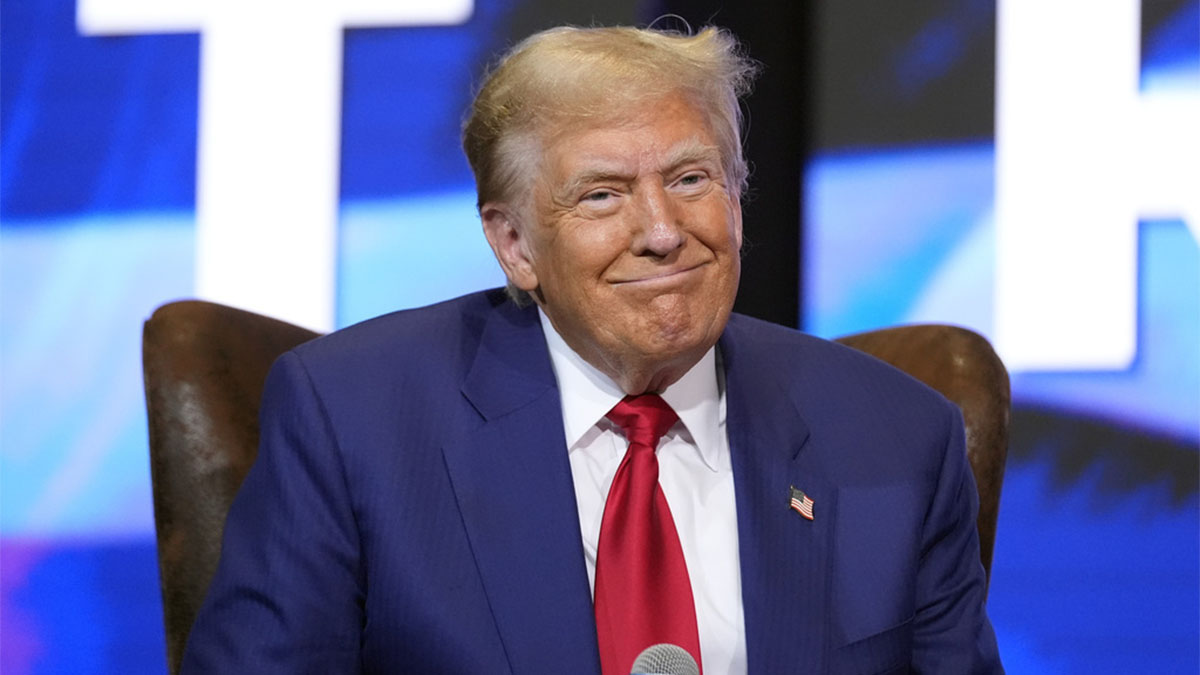Just when you think the Trump-verse has given the world every possible headline, Donald Trump has gone and done it again—this time, not with a policy, but with a word: ‘Panican’.
As Wall Street took a tumble following the US president’s tariff announcements, stock markets across the countries tanked, sending jitters into the business world. But Trump didn’t blink. Instead, he took to the mic—and the internet—to calm his base and scold the worriers, saying: “Don’t be a panican!”
“Some day people will realise that Tariffs, for the United States of America, are a very beautiful thing!” he wrote on the Truth Social platform on Monday.
But what does Trump’s made-up word exactly mean? Here’s the bigger picture.
What does ‘Panican’ mean?
Amidst a market meltdown, President Donald Trump has coined a new term for his enemies: “panicans”—a portmanteau of “panic” and “Republican”.
In Trump-speak, a panican is someone who’s “weak and stupid,” especially in the face of challenging times like, say, slapping tariffs on nearly half the world. As he put it, it’s a “party of weak and stupid people”.
Trying to put out the market blaze he set on ‘Liberation Day’, Trump took to Truth Social to set the tone, just before markets opened on Monday.
“The United States has a chance to do something that should have been done DECADES AGO. Don’t be Weak! Don’t be Stupid! Don’t be a PANICAN!”
“Be Strong, Courageous, and Patient, and GREATNESS will be the result!” he added.
Naturally, the MAGA camp wasted no time running with the new slogan. Congresswoman Marjorie Taylor Greene, jumped on X to post: “PANICANS are losers and failures. Don’t be a PANICAN!!”
Even Trump campaign adviser Alex Bruesewitz tried to plug the president’s tariffs and trash his critics as “panicans.”
“We have a single, critical chance to undo the decades of damage caused by incompetent politicians who let our factories vanish and foreign nations exploit us mercilessly,” he wrote. “Trump will deliver!”
Although some netizens disagreed as they dismissed Trump’s new term.
“He’s calling his MAGA voters who are worried and scared, PANICAN (which he has determined is a new party) WOW!” Another wrote, “He knows he’s f****d—you can tell because the best insult he could come up with is “panican” (??)”
How Trump’s tariffs panicked markets
Now that ‘panican’ has officially entered the Trumpian vocabulary, it’s worth asking—what exactly prompted the need for a new term? The answer lies in the chaos that unfolded across global markets after Trump announced a new wave of reciprocal tariffs.
On Monday, financial markets around the world recoiled. On Wall Street, the stocks plummeted to historic lows. The Dow Jones, S&P 500, and Nasdaq all slid sharply, falling between 4 to 5 per cent shortly after the opening bell.
And it wasn’t just an American tremor.
In Asia, the markets opened under heavy selling pressure. Japan’s Nikkei 225 took the hardest hit, falling by nearly 5.8 per cent. Across Europe, traders also braced for impact, with major indices in the red.
India wasn’t spared either. The BSE Sensex and Nifty50 nosedived nearly 5 percent intraday before managing a slight recovery. By the end of the session, the Sensex closed 3 percent lower, and the Nifty finished down by 3.24 per cent.
Economists warned that the sudden tariff escalation could ripple through global supply chains, push up prices, and put economic growth at risk. Jamie Dimon, CEO of JPMorgan Chase, even raised concerns about the US slipping into recession because of the tariffs.
“The recent tariffs will likely increase inflation and are causing many to consider a greater probability of a recession,” he wrote in his letter.
However, Republican Senator Markwayne Mullin waved off the fears, arguing that a little short-term pain is worth the long-term gain.
“Sometimes in business, you have to have short-term pain to have long-term gain, and we don’t think this is even going to be that long of a short term, if it is at all. We trust the president,” Senator Markwayne Mullin, R-Okla, was quoted by CNBC as saying.
Trump’s DIY dictionary
Panican may be the latest addition, but it’s far from the first. Donald Trump has a long history of turning everyday language—or outright typos—into viral moments.
Covfefe
It all started with a midnight mystery tweet in 2017: “Despite the constant negative covfefe.”
That was it. No context. No correction. Just… covfefe.
The tweet vanished a few hours later, but the internet had already gone into full detective mode, spinning up conspiracy theories, memes, and jokes at breakneck speed. Trump, of course, played along the next morning, tweeting: “Who can figure out the true meaning of ‘covfefe’ ???” he wrote. “Enjoy!”
Bigly
If Trump’s vocabulary is his toolbox, bigly might be his favourite wrench.
For years, he was believed to be using the word bigly to describe, well, everything. It caused confusion, debate, and countless internet threads. Was he actually saying “big league”? Or did he invent another word?
Eventually, Trump cleared it up in an interview with EWTN, a Catholic news network: it’s big league, not bigly.
Yuge
It’s just Trump’s way of saying huge.
His signature pronunciation, “yuge,” is rooted in his New York accent, where the ‘h’ in “huge” tends to get dropped. While linguists weren’t surprised, it still became part of his everyday talks. Every rally, every soundbite—if it’s big, it’s yuge.
With input from agencies
)